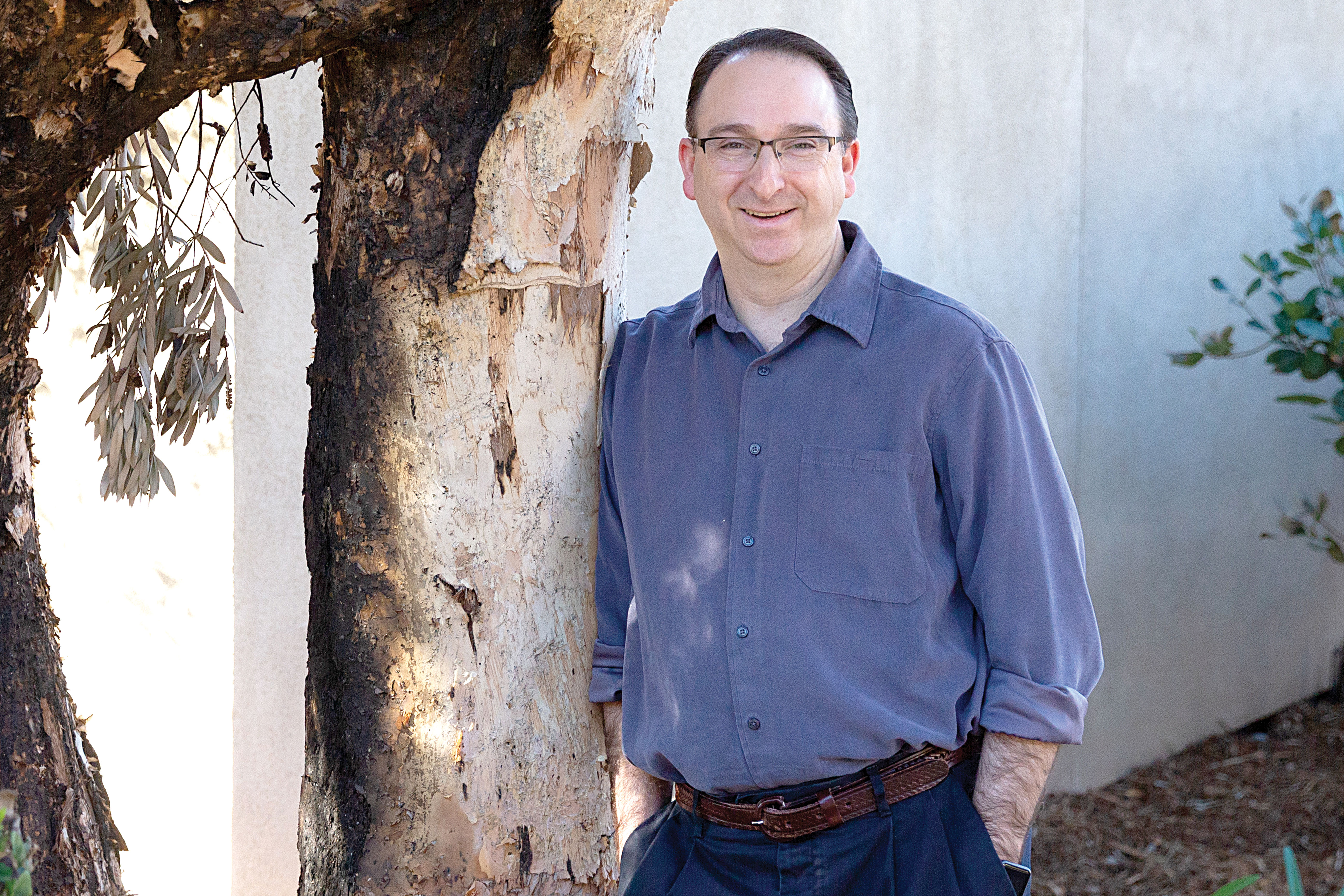 Photos by Cyndi Bemel
Photos by Cyndi Bemel The Conejo Valley community was still reeling from the Borderline Bar and Grill shooting in Thousand Oaks in November 2018 when the Woolsey Fire broke out. Cantor David Shukiar of Temple Adat Elohim (TAE), a Reform Congregation of the Conejo Valley, received a frantic call from a congregant who had seen smoke near the temple building. Shukiar headed to the temple, called the facilities manager, and for three hours, the pair used hoses to put out hot spots at the campus and at the elementary school.
“I was shocked at how much water it took,” Shukiar said in a phone interview. When members of the fire department came through, they explained that under the ash, the embers were still hot, “resulting in a creeping fire that works its way slowly and has the potential to reignite. The fire department said they were grateful for our firefighting ability. I was grateful she [the congregant] called. I don’t know what made her call us.”
Regarding the fires, Shukiar said, “there was a lot of heroics around our community,” including TAE Rabbi Barry Diamond who ran into the temple to rescue their Torahs, and the congregants who organized right after the fire.
“Within two days, we had reached every member to figure out what they needed [and] how many congregants lost homes. It was a pretty heroic couple of days for the whole community,” Shukiar said.
“The fire department said they were grateful for our firefighting ability. I was grateful she called.”
Shukiar’s road to becoming a cantor was far from traditional. While growing up in Canoga Park, Shukiar was “disillusioned with organized Judaism,” but loved musical theater. In 1995, he moved to New York to try to make it on Broadway. His then-fiancée, Leasa, who was studying Judaism, urged him to find a temple for the High Holy Days. He chose Congregation Rodeph Sholom on Manhattan’s Upper West Side, which welcomed them as members. Rodeph Sholom also premiered his original Hanukkah musical, “Benjamin and Judah.”
“Seeing Leasa’s excitement and being welcomed by a community — that started my journey home to Judaism,” he said. “Seeing the beauty through her eyes was really what enabled me to come back for myself.”
The two were married in 1996, spent six months performing on a cruise ship, and returned to Los Angeles. Facing a house payment and preparing for a child, Shukiar realized spending five years at cantorial school wasn’t an option, so he studied privately at TAE. He became choir director at TAE in 1997 and then spent five years at Beth Shir Shalom in Santa Monica, where Rabbi Neil Comess-Daniels gave him what he called “a foundation that I continue to build upon.”
For the past 13 years, Shukiar has been back at TAE, where he oversees and facilitates all aspects of the music program, including Shirei Elohim, the junior choir; the junior cantors; the Temple Adat Elohim Chorale; The Band of Milk and Honey; and the TAE Community Orchestra. He also wrote “Chamilton,” a Purim parody of “Hamilton,” and “The Shushan Schlepper’s Purim Chai Club Band,” the story of Purim through 21 Beatles songs. And he’s a member of the Guild of Temple Musicians, which has twice awarded him the Ben Steinberg Young Composer’s Award.
“As much as the sermons our rabbis give are meaningful and powerful, I don’t think there’s any vehicle that can express the power of a moment more than music,” he said. “Music takes a moment and elevates it so people can connect through something higher.”
Read more about our 2019 mensches here.





















 More news and opinions than at a Shabbat dinner, right in your inbox.
More news and opinions than at a Shabbat dinner, right in your inbox.